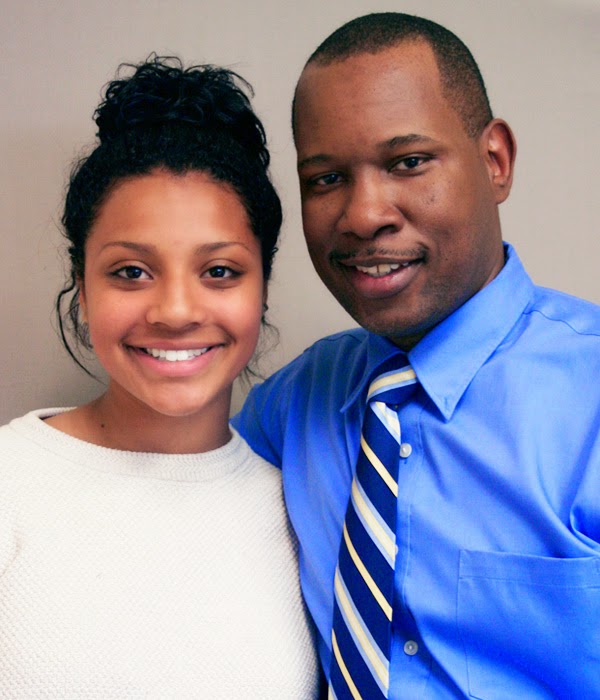As is my habit, I was listening to NPR on my way to school this
past Monday. You might remember that
the temperature was below zero and the wind was blowing. Jim White had made his much anticipated call,
and we were delayed—again.
We live close to school, so it’s a very short drive to work. Even in those few minutes it took to navigate
the frozen roads to Olio and 126th, I discovered that the news, like the
weather, was mostly bad: On top of all the other atrocities, we now have evidence
that ISIS is recruiting and using child soldiers; the recent storms have
knocked out power over wide sections of the South; and our state legislators continue
to battle over education—with our schools and students caught in the crossfire.
 |
| Photo from NPR |
As I pulled into our parking lot, Morning Edition changed the tone of the reports, and in the
process, they changed my attitude for the day.
In order to celebrate the tenth anniversary of StoryCorps, Steve Inskeep
was revisiting some of his favorite recordings. For those of you
unfamiliar with StoryCorps, it is one of the largest oral history projects ever
attempted. They have collected over
50,000 interviews, and the collection continues to grow.
The particular story that drew my attention last Monday was recorded
originally in 2012 by Wil Smith (not the movie star!) and his daughter, Olivia.
Together, they retold the story of how Wil had entered Bowdoin College as
a 27 year-old freshmen. Besides his age,
something else distinguished him from other college students: At Bowdoin, Wil attended classes, played
basketball, lived in the dorm, and worked nights, all with his infant daughter
accompanying him everywhere. He even
carried her across the stage at his graduation ceremony.
I found myself sitting in my car out in the parking lot so I could
hear the end of their story. The wind
chill was subzero, but this story both warmed and moved me. Wil ended this recording by saying to Olivia,
"I draw my strength from you. I
always have, and I still do.”
 |
| Olivia and Wil from StoryCorps |
If you possibly can, please take a few minutes to listen to their
story. It is simultaneously uplifting and heart-wrenching and well worth
your time. Use this link.
Life can be discouraging, and it is often unfair. The Smith story is testimony to that fact,
but it also testifies to something more. In the midst of the all of the bad
news, when we stop to look and listen, we can find examples of lives lived fully,
lived with love, and lived in ways that bring hope even in the midst of
tragedy.
Wil Smith appears to have lived one of these lives.
Thanks for all you do, HSE. My hope is that you also find
this story inspirational and can draw strength from the examples of Wil and
Olivia.
Phil
- “Being deeply loved by someone gives you strength, while loving someone deeply gives you courage.” --Lao Tzu
- “I wanted you to see what real courage is, instead of getting the idea that courage is a man with a gun in his hand. It’s when you know you’re licked before you begin, but you begin anyway and see it through no matter what.” --Atticus Finch in Harper Lee’s To Kill a Mockingbird
- “Strength does not come from physical capacity. It comes from an indomitable will.” --Mahatma Gandhi






